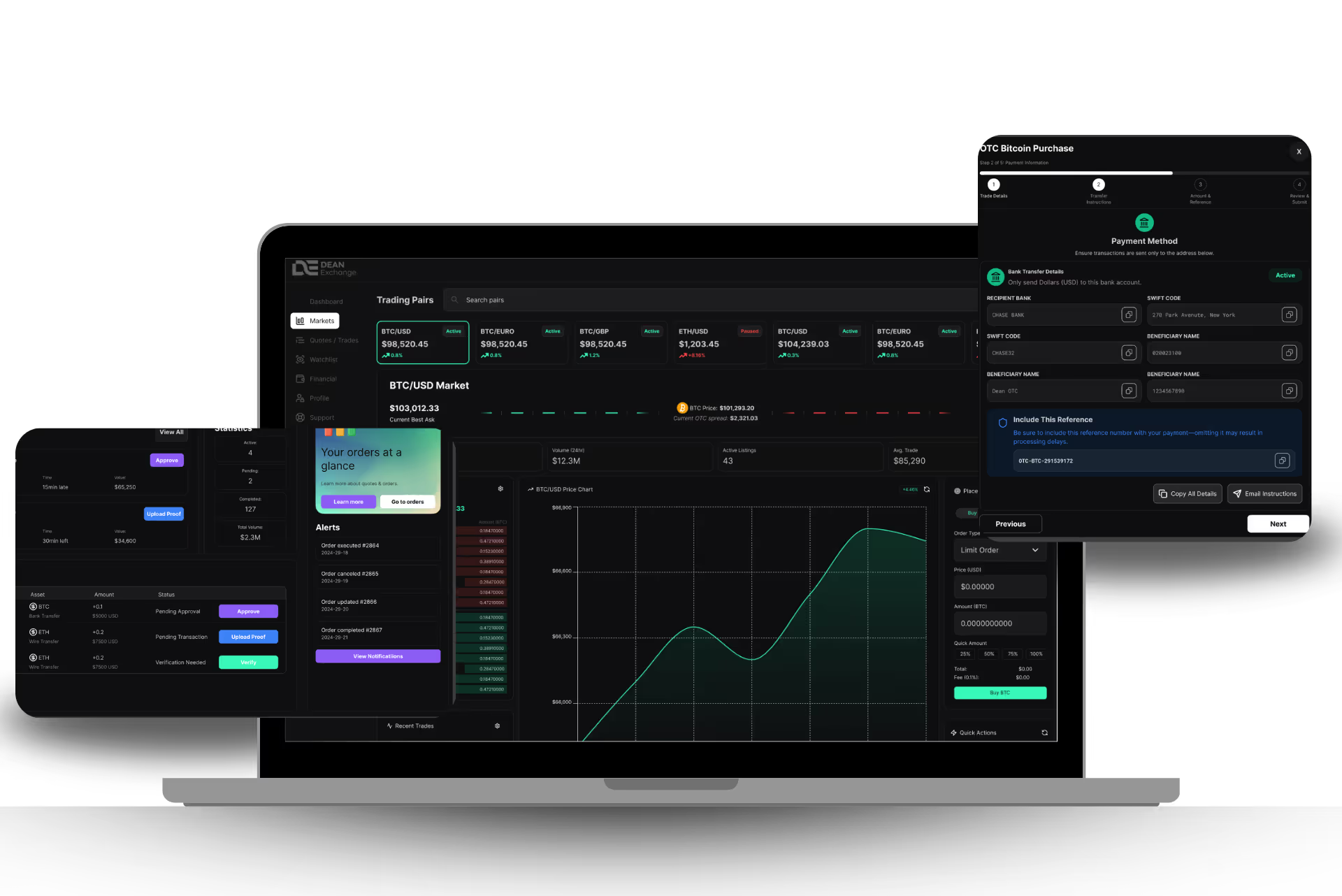By the
This is some text inside of a div block.
This is some text inside of a div block.
•
5
min read

As the world accelerates its shift toward renewable energy, the demand for smarter, more transparent, and decentralized energy systems is at an all-time high. Traditional energy infrastructures—centralized, opaque, and slow to innovate—struggle to keep up with the growing complexity of green energy production and consumption.
Enter blockchain technology, a distributed ledger system that’s transforming how energy is generated, traded, and tracked. From peer-to-peer solar trading to carbon credit tokenization and decentralized grids, blockchain is unlocking new models for sustainable energy management. In this article, we explore how blockchain energy solutions are helping to create a greener, more efficient future—and how Dean Exchange supports this innovation through education, insights, and live blockchain sessions.
Blockchain technology is a secure, transparent digital ledger that records transactions across a decentralized network of computers. Each record—or “block”—is timestamped, immutable, and linked to the previous block, making it nearly impossible to alter.
Unlike traditional databases that are centrally controlled, blockchain is distributed, allowing all participants to access the same version of the truth without intermediaries. For the energy sector, this means:
These capabilities enable blockchain energy solutions to reduce friction, increase efficiency, and empower energy consumers and producers alike.
One of the most promising applications of blockchain in energy is peer-to-peer (P2P) trading. This model allows households and businesses with solar panels or other renewables to sell excess energy directly to neighbors or the grid—without traditional utilities acting as intermediaries.
How It Works
Power Ledger enables P2P energy trading in residential communities across Australia, India, and the U.S. Their platform uses blockchain to:
In one trial in Western Australia, Power Ledger enabled solar producers to earn more from their energy, while buyers paid up to 35% less than standard retail rates.
Dean Exchange Tip: Explore our cryptocurrency tutorials to understand how tokens are used to facilitate these energy trades and how decentralized platforms like Power Ledger work behind the scenes.
Carbon markets are key to global climate efforts—but traditional carbon credits face issues with double counting, lack of transparency, and slow verification processes. Blockchain is improving this by digitizing carbon credits into tokenized assets, which can be tracked and traded seamlessly.
How It Works
WePower partnered with energy producers to tokenize renewable energy contracts and allow investors to purchase future energy output as tradable tokens. Their system also supports carbon credit trading, providing both transparency and liquidity to traditionally rigid markets.
Impact:
Dean Exchange Insight: As crypto market trends lean toward sustainability and ESG integration, tokenized carbon credits may soon become a core component of blockchain-enabled finance and compliance.
Decentralized grids—or “microgrids”—allow communities to produce, store, and distribute their own energy independently from the main grid. Blockchain technology provides the infrastructure for secure coordination and accounting across these systems.
Benefits:
Energy Web Foundation (EWF) develops blockchain tools for energy markets, supporting use cases like:
EWF’s open-source blockchain, Energy Web Chain, powers several pilot programs in Europe and Asia, including a collaboration with Elia Group, one of Europe’s largest transmission system operators.
Results:
Dean Exchange Suggestion: Join our live blockchain sessions for walkthroughs of real decentralized grid projects and how they interact with blockchain-based platforms.
Blockchain prevents manipulation of energy credits or renewable certificates by ensuring every transaction is cryptographically validated and permanently recorded.
Decentralized ledgers allow multiple stakeholders—utilities, regulators, customers—to access consistent, verifiable energy data.
Smart contracts automate processes like billing, energy allocation, and regulatory compliance—reducing time and operational costs.
Blockchain enables tokenized reward systems to encourage energy-saving behaviors, demand response participation, or investment in green technologies.
At Dean Exchange, we understand that sustainable energy requires not just new technologies—but also informed adoption. That’s why we support professionals and businesses with blockchain education tailored to the energy sector.
Whether you're designing a green tech product, modernizing your utility operations, or investing in clean energy tokens, Dean Exchange gives you the knowledge and confidence to move forward.
As climate concerns intensify, energy systems must become cleaner, more transparent, and more adaptive. Blockchain energy solutions offer a path to achieving that vision—by empowering individuals and communities, removing inefficiencies, and building trust into the foundation of our power systems.
From peer-to-peer solar trading to tokenized carbon credits and decentralized exchanges for energy assets, blockchain is unlocking possibilities once thought too complex to scale. The shift is already underway—and the energy transition will be more effective, equitable, and resilient because of it.
Dean Exchange is here to help you lead that change.


Join our newsletter for exclusive insights, breaking crypto trends, and learning opportunities—delivered straight to your inbox.